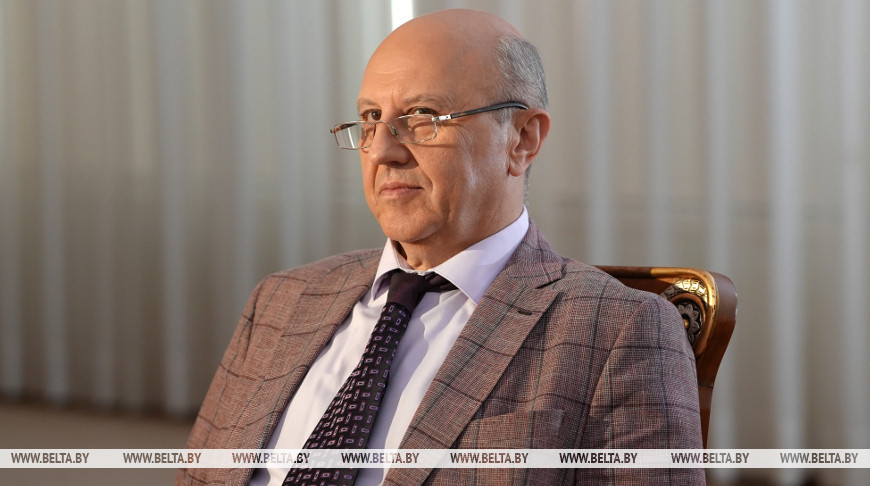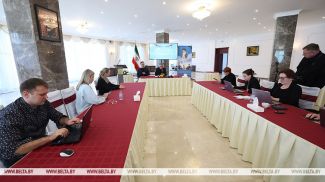
News of the story
"On Point"
MINSK, 2 October (BelTA) – The main goal of the Ukraine conflict extends beyond a peripheral war. It is to weaken Russia and China, the Russian historian and director of the Institute for Systemic and Strategic Analysis Andrei Fursov said in a new episode of the V Teme [On Point] project on BelTA’s YouTube channel.
“During a systemic crisis, wars have a layered nature. While on the surface it [the Russia-Ukraine conflict] may seem like a war between former Soviet countries, like an ongoing consequence of the dissolution of the Soviet Union but in essence, it is the outermost layer,” Andrei Fursov stated.
He noted that the Ukraine conflict started when Biden was in power. The historian believes it was provoked by power groups of the UK and the USA. “Biden served the interests of U.S. clans closely linked to British ones. It is a UK-USA bloc. We cannot clearly separate the UK and the USA; we must distinguish between the British-U.S. and the U.S.-British clans,” Andrei Fursov said.
The historian is convinced that fueling the war in Ukraine pursued several goals. Primarily, it was a plan to strike a blow against Russia. “To provoke it and then pin all the blame on it. In fact, Biden later gave himself away by speaking about it openly,” he said.
The goal was to disconnect Germany, Europe’s economic powerhouse, from Russian resources and to drive a wedge between the EU as a whole and China.
“This Anglo-Saxon alliance can be described by the German word ‘Hassliebe’– love-hate [dynamics]. There was an attempt by the UK to drag the USA into a military conflict. What Trump is doing now shows that the forces behind him do not want to get involved in this conflict in any way,” the expert said.
Andrei Fursov added that attempts to weaken Russia are also motivated by the goal of subsequently making it easier to deal with China. “So, this Ukrainian conflict is a layered one, with level upon level. And in a systemic crisis, there is no such thing as a peripheral war. This is the contradictory nature of our age,” the expert said.













